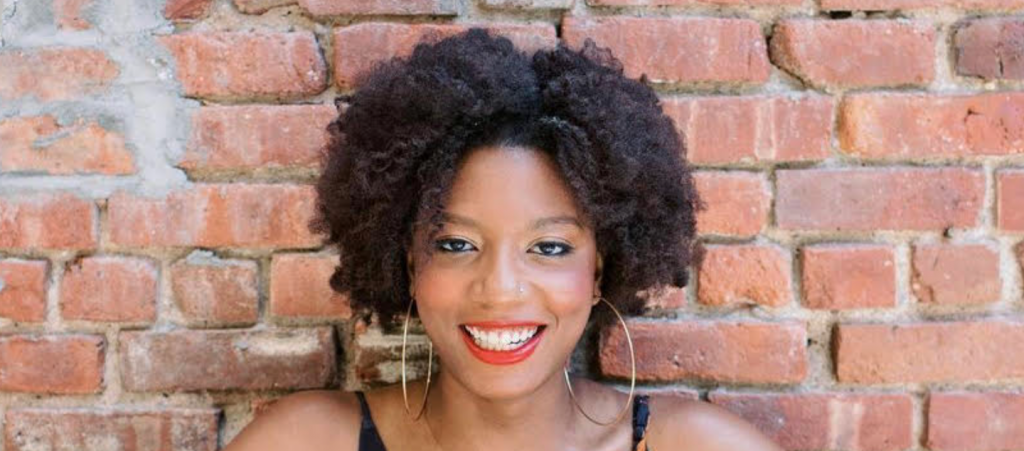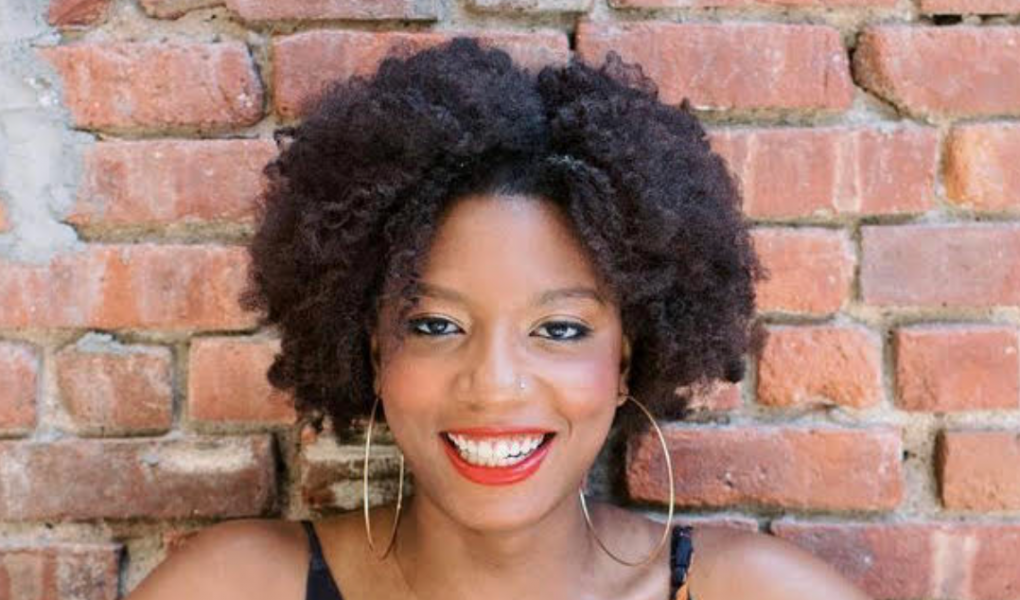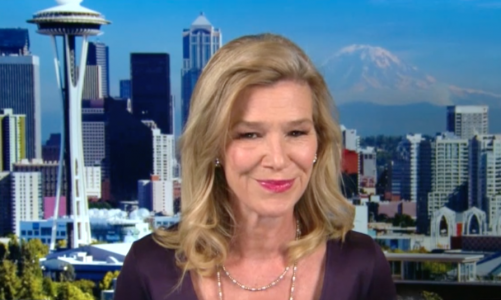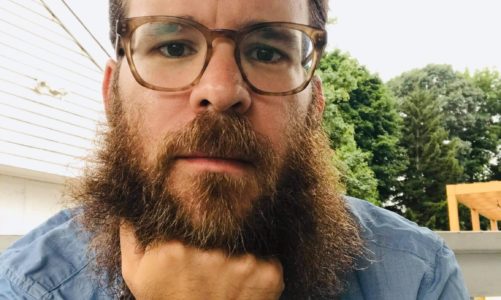
Chloé Valdary is the founder of Theory of Enchantment, a diversity and inclusion organization that teaches adults and high school students emotional resilience and healthy identity formation. Art, especially music and dance, are vital to Valdary’s life, so she hopes to show the world how art has the power to heal social and interpersonal conflict. She has been a guest on several podcasts, including Coleman Hughes’s Conversations with Coleman, Megyn Kelly’s The Megyn Kelly Show, and Simon Sinek’s A Bit of Optimism. Valdary has also published pieces in The New York Times, The Wall Street Journal, and The Atlantic.
Danielle Springer: How does your organization differ from other diversity and inclusion organizations?
Chloé Valdary: The German Jewish philosopher Erich Fromm talked about the idea of “having” versus “being” as two different modalities. The “having” modality is one where a person starts to define their entire identity according to what they have. Obviously, human beings need to have certain things, but there has to be a greater principle according to which we live our lives. The “being” mode is all about our relationships and how we relate to people, environments, and things that emerge in our lives.
I think that a lot of the other diversity and inclusion programs are rooted in the “having” mode – they’re defining outcomes based upon how much a person or group of people have. Or even how many people of a certain kind are “had” by an organization. For example, some measure success primarily by asking how many black people an organization “has” on boards or in positions of power. When you get into the “having” mode, you erode the capacity for transcendence, and you get into this never-ending “us versus them” headspace. Instead we should ask, “How do we want to be?” “What is the nature of our relationship with each other?” And then root the “having” mode in those fundamental questions. So at Theory of Enchantment, we try to stay in the “being” mode.
So, Theory of Enchantment is a relational practice, and I stress the word ‘practice’ because there is no final product. If you take Theory of Enchantment, it’s not like your staff is going to be filled with more Black people; that’s not what we promise you. We promise you a way of being that makes you less likely to contribute to supremacist ways of thinking and being, which we are all susceptible to regardless of our skin color. We also have a transcendent outlook and a transcendent vision that many programs don’t have.
Can you explain what “agape love” is and how it informs the Theory of Enchantment?
Agape love comes from the Christian wisdom tradition, and it basically means unconditional love. The third principle of Theory of Enchantment is, “try to root everything you do in love and compassion,” and, by love, we do typically mean agape love. It is highly difficult to practice and absolutely impossible to perfect. There is no such thing as perfection when it comes to this work. A great analogy for agape love is the selfless love that a parent has for a child that enables that child to grow into maturation; this is where the concept of “being raised” comes from. It is the kind of love that turns helpless, dependent beings into mature, sovereign beings.
The capacity to practice agape love requires a person to be in relationship with their own sense of suffering and requires an understanding that all people suffer. Those two elements are key ingredients. I think it’s harder to practice agape love if you have experienced very little hardship in life. However, if you understand that all people suffer, then it’s possible to perhaps use that as a way as the entry point to teach people agape who may have not been exposed to it at an early age.
This is the kind of vision that Dr. King had that informed his nonviolent stance during the Civil Rights Movement. He understood that even people with power – and this is also something that’s missing from some of the other programs – that even people who have material power were still suffering, because they didn’t have the capacity to be in relationship with themselves in a holistic way, let alone with others. He understood that the people that were oppressing him were themselves oppressed by a pathology that made them obsessed with race. There was a kind of spiritual impoverishment at the heart of that. So, agape love, even while protesting the outcome of that spiritual impoverishment, seeks the full development of those human beings at the same time.
That’s what we’re ultimately striving for. But again, it isn’t only a set of propositions that I can give you, where I say to you “memorize these things and you’ll be anti-racist.” You have to actually practice. That’s why agape is super fundamental to a lot of what we do.
Do you think agape love would have changed the outcome of the recent elections or maybe have prevented Trump from becoming elected? Particularly in regard to Hillary Clinton calling Trump’s base a “basket of deplorables.”
Because politics has become a zero-sum game where their opponents are just going to sling mud at them, politicians aren’t incentivized to practice agape love. I certainly would have loved to see politicians on the left practice it, but I don’t know that I’ve ever seen any politician practice agape love. It would certainly have been an act of strength and character for Hillary Clinton to practice agape love in the same way that I think Barack Obama practiced it in his speech “A More Perfect Union,” where he said, “I can no more disown Jeremiah Wright, who is rallying against White people, than I can my grandmother who raised me but also harbored racist prejudices against Black people.” It’s this awareness of the duality in human beings and that’s in oneself that’s also a key ingredient in being able to practice agape love.
Would you say that Theory of Enchanment’s (ToE)’s approach to right-wing bigotry is the same as that of left-wing bigotry? For example, would you teach a KKK member in the same way that you would teach someone like Louis Farrakhan?
That’s a great comparison. Regarding Louis Farrakhan, it is very important to understand the cultural grammar that the Nation of Islam came out of. Elijah Muhammad and Malcolm X’s fathers were both preachers who came out of this Protestant apocalyptic tradition where they were teaching about the end times. They were obviously living in a time where White people were being racist towards them. They’re basically living in a world that, for all intents and purposes, was hell for them. Hell was already here. And the ideology of the Nation of Islam said, “Oh you think that my skin color is what makes me evil, what makes me inferior? Actually, the opposite is true. My skin color is the reason why God loves me; my skin color is what makes me better than you.” You have this tragic inversion of a mythology that was being preached to them. All rooted in this very apocalyptic Puritan, Protestant vision that was then inverted as a defensive mechanism. Anyone that is being honest with themselves can understand how you could come to this conclusion as a defensive mechanism.
But the same thing is happening with White people in the KKK. At a certain point, the Nation of Islam started hobnobbing with members of the KKK, because they shared the same separatist interest. It’s the same fundamental impulse in all of us. It is what happens when a group of people, White or Black, are experiencing some kind of insecurity or sense of contempt for themselves. If you don’t have the tools to deal with that in a healthy way, you will overcompensate and project that onto another group of people. So yeah, I would address them the exact same way.
I see this kind of pattern among the people who support those who are viewed as “underdogs,” certain minorities, in the US: they also frequently support Palestininans. Where does this pattern come from?
There’s a kind of lazy compare-and-contrast when we project our racial situation onto the Israeli Palestinian conflict when they are two totally different conflicts. I hate to keep using the term “defensive mechanism,” but I think that ultimately that’s what it is. In particular, some members of the Black Lives Matter want so desperately to be loved, desired, and needed, that they will cling to whatever comparison and contrasting move that can give them that sense of being loved.
I think it’s intellectually lazy, whether you’re talking about how members of BLM [Black Lives Matter] compare themselves to Palestinians, or if you’re even talking about the Israeli-Palestinian conflict itself as a separate thing, what is ultimately going on is this need to be loved. And, there’s this lack of the proper tools to deal with trauma, insecurities, fears, and shadows. So we’re projecting and comparing and contrasting. Theory of Enchantment has a lot of work to do.
How does ToE see conflict resolution? What would be the ideal outcome of conflict resolution with people of entirely different worldviews?
I got this idea from John Vervaeke, who talks about the difference between “philonikia” and “philosophia,” the latter which is the root word of “philosophy.” Philonikia is all about the love of victory. The love of defeating your opponent in a battle. Bvc nWhereas with philosophia, the love of wisdom, the objective is to come into fellowship with each other in order to pursue wisdom. It’s not a zero-sum game anymore. You’re no longer in a relationship where you’re trying to destroy your opponent; you don’t even see them as an opponent. You see them as someone who, like you, was made in the image of the Divine and has a very unique thing to contribute to the conversation about the pursuit of wisdom and how you can live better lives and be in relationship with each other. The purpose is not to agree on everything; the purpose is to treat each other with love and compassion even in the midst of profound disagreement.
A lot of far-left critics seem to think that Martin Luther King Jr.’s view of eliminating racism is antiquated or naive, or that people use his teachings as an attempt to bypass the real work that must be done. What would you say to those critics?
Well, I would say to those critics that if their critique is that Dr. King’s method cannot eradicate racism, they are correct. This is really important to point out: racism can never be fully eradicated, in the same way that murder and any of the ills of society can never be fully eradicated. We can always make our society better, but there is no final utopian state at which we will one day arrive. That is a zero-sum, finite game mentality that Theory of Enchantment rejects.
There’s a great book called Finite Games and Infinite Games by James Carr, where he talks about the difference between these two. Finite game mentality is one in which you believe that you will arrive at this final utopian state where everything will be perfect, which is never going to happen. That is the mindset that underpins a lot of the puritanical apocalyptic visions that produce this counterdependent, “us versus them,” way of thinking in the first place.
In contrast, an infinite game mentality is different, as the objective is to keep the game in play. In a finite game, the objective is to win the game and winning the game ends it, right? With an infinite game mentality, there is no utopian end. There is just the next horizon, infinitely into the future. I think that Dr. King’s vision ultimately lends itself to an infinite game. To keep the game in play and to be able to recognize the universal suffering that all human beings experience and to embody the agape love that is required to persuade people to recognize that as well.
Based on your responses, I sense that, at its core, the issue isn’t really racism. It seems like racism is more superficial than the core issue of what you’re speaking of and what ToE works on.
I think we are defining racism as this supremacist tendency. And again, anyone of any category can be susceptible to it, because supremacy is ultimately a product of being out of right relationship with oneself. Racism is obviously not the only manifestation of supremacy, but it’s certainly an entry point into a discussion about it. So, I do think racism is certainly a huge part of what we try to tackle, but to your point, it’s not the only thing we try to tackle.
Why does ToE focus more on the internal battle within oneself, rather than racism at the structural level?
If when people say “structural,” they mean things like Jim Crow, then yes, that required a legislative response to fix a legislative problem. But what persuaded people to adopt that legislative response ultimately were the practices that the people in the Civil Rights Movement embodied. I don’t think that these things are necessarily opposed to each other; I don’t think you can actually achieve systemic change without the human element.
What European society was caught up in when it was enslaving and raping Africa had not only structural sources but came from the human heart. Europeans were refusing to deal with their own darkness and were then projecting that darkness on to people with dark skin. That failure is what actually produced racism. If we make the same mistake, and we say let us banish and try to suppress and get rid of every single element within ourselves that is a part of our shadow, we will actually end up creating the same cycle over again. So we actually have to learn to live with the parts of ourselves that we don’t like and bring it into right relationship instead of trying to completely eradicate it. This is very important to stress. Any movement that seeks to completely eradicate an evil will itself become evil.
That seems quite common on Twitter. Certain people that started out trying to counteract the growing presence of Critical Race praxis in pedagogy are slowly becoming as dogmatic themselves.
It’s interesting. One of the classic books from Critical Race Theory is a book called Words that Wound, which was written by Mari Matsuda, which basically argues that the First Amendment should be curtailed when it when it comes to certain words, let’s say racial epithets, that she argues, can wound minorities.
In the same way that the Critical Race Theorists made the argument that words can psychologically harm minorities, the right is now responding by saying “You know what you’re right; words can wound, so we should ban all these books that wound White people.” I think this is so funny and also terrifying. Some people say that the right’s response is an overreaction, but it’s also kind of the same argument that Critical Race Theorists made back in the 70s and 80s.
Henry Louis Gates points out in this essay written in the 1990s that the problem with Critical Race Theory is that what it seems to be vying for is raw power, and this is what happens when you do not have a transcendent framework. Your obsession becomes: “How much power can I acquire in order to achieve justice?” So I just think it’s so fascinating that’s happening with the overreaction on the part of the Right with these Critical Race Theory bans that are being passed. The Right has basically taken the Left’s playbook and they’re saying to them, you have dealt this hand; we intend to play it. It’s tragic, but it’s also predictable.
What elements of CRT [critical race theory] do you think are salvageable?
I think that Derrek Bell’s critique of the Civil Rights Movements’ emphasis on integration without focus on empowering communities is a valid critique. I read a book called The True and Only Heaven by the author Christopher Lasch and his critique of King was that he failed in Chicago because he immediately tried to push for integration instead of what he should have done, arguably, which was going to the communities – in the ghettos, in the public housing units that were there – where people were cruelly crammed and emotionally dejected.
He should have actually tried to cultivate community like there was in the South. The South had communities that were able to raise all this money from the Black-owned businesses, from the Black-owned churches and deploy that to do a boycott. Those communal networks did not exist in Chicago. And so King found that people in Chicago were so spiritually destitute that they lacked the self-esteem required to actually get them to protest segregation in the first place. But instead of having the vision to see that and focus on developing the community of Chicago, King essentially skipped the step. So Derrek Bell’s point that desegregation, immediately, right now, at all costs, is not necessarily the smartest idea was a valid point.
What do you think is the “best” way to teach Critical Race Theory?
I would teach Critical Race Theory alongside other theories, including the Theory of Enchantment. I would actually put them in conversation with each other. We teach Baldwin in conversation with Ta Nehisi Coates in Theory of Enchantment, so we have people read The Fire Next Time and then they read a snippet from Between the World and Me, and these two have very different conceptions of White people. So, I would give people the full suite of history. I think they would be all the richer for it, because what would happen is that students would be encouraged to have a Socratic dialogue rooted in the spirit of the pursuit of wisdom to figure out what they think about these things – so we can together discover the truth that emerges. But I obviously wouldn’t actually teach any of these things as gospel.
John McWhorter repeatedly describes the current anti-racist movement as a “religion”. How do you feel about this claim?
I disagree with my esteemed friend. I don’t think it’s a religion; I think it’s a belief system. James Carse wrote another great book called The Religious Case Against Belief, where he argues that a religion, by definition, requires multiple communities. Let’s say within Christianity, there’s like a million different sects that contradict each other and disagree with each other, and yet that is fundamentally one of the things that makes Christianity a religion. It’s that it’s actually able to contain multiple and contradictory belief systems, where the conversation continues. Again, this is like that infinite game mentality where the conversation continues and outlasts institutions, popes, and potentates. That’s what makes a religion a religion. Whereas a belief system, which is not a religion, is closed, and fixed and contains more of that zero-sum, finite game mentality.
So within the CRT debate, certain people who dislike CRT also seem to criticize people on their own side who don’t do “enough” to oppose CRT. Do you think this kind of tribalism is inherently fractal, in which there will always be a continual subdivision?
Ironically, once again, this is a desire on the part of human beings, to completely banish the “darker elements” within society. This never works and always leads to totalitarianism. I know that there are certain iterations of CRT that caricature White people and this is what a lot of people on the Right are responding to, but both sides are failing, because both are basically trying to do the same thing, which is to completely eradicate evil. They’re like mirror images of each other.
Do you think this relates to the decolonization movements at universities?
I think the decolonization movement is a response to certain aspects of the Enlightenment. Ironically, I would actually argue that the Enlightenment in many ways is the ancestor of all this. Obviously, there are many elements of the Enlightenment that are positive: scientific rationalism, for example. But there are other elements that actually aren’t great, and one of those elements has to do with Descartes.
Descartes basically promoted this idea that there was a split between the mind and the body: Cartesian dualism. He basically said that the mind is all that matters and the body is not only irrelevant, it’s a source of all our darkness. I’m giving you a summary here for the sake of time, and I don’t want to make Descartes sound like the big bad wolf, because he’s not; he was very brilliant in many ways. But I think when Cartesian duality banished the body as a source of wisdom and importance to the human condition. And some cultures in America are a product of that way of thinking. We have many cerebral, academic cultures, but we also have cultures that are more embodied. One of the cultures that happens to have a more embodied culture is African-American culture — that sees a wisdom that can be expressed in the body. You can see it in different art forms, like acting and dancing. I don’t know if you’ve seen this poster that used to be part of the [National Museum of African American History and Culture] in DC that defined whiteness as “showing up on time,” and all these things. I suspect this a misfired attempt to respond to this deep and long-standing rejection of embodiment on the part of the Enlightenment. What Theory of Enchantment is seeking to do is to integrate all these things: the cerebral and the intellectual, but also the artistic and the embodied.
Another thing is happening. In the same way that the West has a history of White people seeing Black people as the sort of symbol of evil, I think the flip side is happening. Now you have Black people, as well as a lot of White people filled with feelings of guilt, seeing White people as the epitome of evil. This speaks to why the practice of not caricaturing and not stereotyping is so critical and so important, because when you do that, you become obsessed with the image. You turn an image into an idol, and you see it as the wholesale representation of a certain attribute. Part of what Theory of Enchantment is trying to accomplish is getting people to realize their own inexhaustibility; the fact that we as human beings are not one single thing.
*This interview has been edited for length and clarity.




